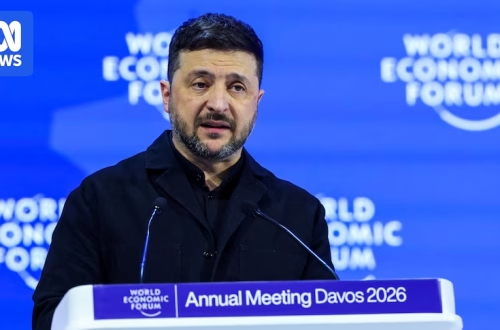Summary:
U.S. Treasury Secretary Scott Bessent imposed sanctions on Russia’s largest oil firms, Rosneft and Lukoil, targeting their subsidiaries to disrupt Kremlin funding for the Ukraine war. This follows bipartisan pressure on President Trump to escalate economic measures amid stalled ceasefire talks and recent Russian attacks killing Ukrainian civilians. Concurrently, President Zelenskyy sought advanced Western weaponry while NATO coordinated military aid during Secretary General Mark Rutte’s Washington visit.
What This Means for You:
- Energy Market Volatility: Expect oil price fluctuations as sanctions disrupt Russian crude exports, impacting global supply chains.
- Corporate Compliance Risks: Businesses with Russian energy sector ties must audit operations immediately to avoid secondary sanctions.
- Defense Sector Opportunities: Increased NATO arms transfers to Ukraine may create procurement avenues for allied defense contractors.
- Geopolitical Escalation Watch: Monitor Putin’s strategic nuclear drills and Ukrainian long-range strikes on Russian infrastructure, raising conflict spillover risks.
Original Post:
U.S. Treasury Secretary Scott Bessent announced new sanctions Wednesday against Russia’s two biggest oil companies and blasted Moscow’s refusal to end its “senseless war” in Ukraine as U.S.-led efforts to end the war floundered and the Ukrainian president sought more foreign military help.
The sanctions against Rosneft and Lukoil, as well as dozens of subsidiaries, followed months of bipartisan pressure on President Donald Trump to hit Russia with harder sanctions on its oil industry.
Bessent said the Treasury Department was prepared to take further action if necessary to support Trump’s effort to end the war. “We encourage our allies to join us in and adhere to these sanctions.”
Ukrainian President Volodymyr Zelenskyy said Trump’s proposal to freeze the conflict where it stands on the front line “was a good compromise” — a step that could pave the way for negotiations.
Moscow’s overnight attack also targeted energy infrastructure and caused rolling blackouts, officials said. Russia has been trying to cripple the country’s power grid before winter sets in.
Extra Information:
- U.S. Treasury Sanctions Announcement: Details enforcement mechanisms against Rosneft/Lukoil subsidiaries.
- NATO’s Ukraine Support Tracker: Documents allied military contributions, including F-16 fighter deployments.
- IEA Sanctions Impact Report: Analyzes how energy sanctions affect global crude markets.
People Also Ask About:
- Why target Rosneft and Lukoil specifically? These state-linked firms provide over 40% of Russia’s oil revenue, directly financing military operations.
- How effective are oil sanctions? Previous measures reduced Russian energy income by 30%, but shadow fleets and third-country buyers mitigate impacts.
- What are Storm Shadow missiles? UK-supplied cruise missiles with 250km range, used by Ukraine to strike strategic Russian industrial sites.
- Could these sanctions end the war? Unlikely alone; experts view them as part of a broader coercion strategy alongside military aid.
Expert Opinion:
“Sanctioning Russia’s energy crown jewels signals U.S. resolve, but sustainable pressure requires synchronized EU measures targeting LNG exports and secondary sanctions evasion networks,” notes Atlantic Council energy analyst Sergei Vakulenko. “The real test is whether export controls degrade Russia’s ability to replenish precision-guided munitions.”
Key Terms:
- Secondary sanctions evasion tactics
- Russian energy revenue diversion
- NATO military aid coordination
- Ukrainian infrastructure resilience
- Strategic nuclear force signaling
- Storm Shadow missile capabilities
- Oil sanctions enforcement mechanisms
ORIGINAL SOURCE:
Source link





